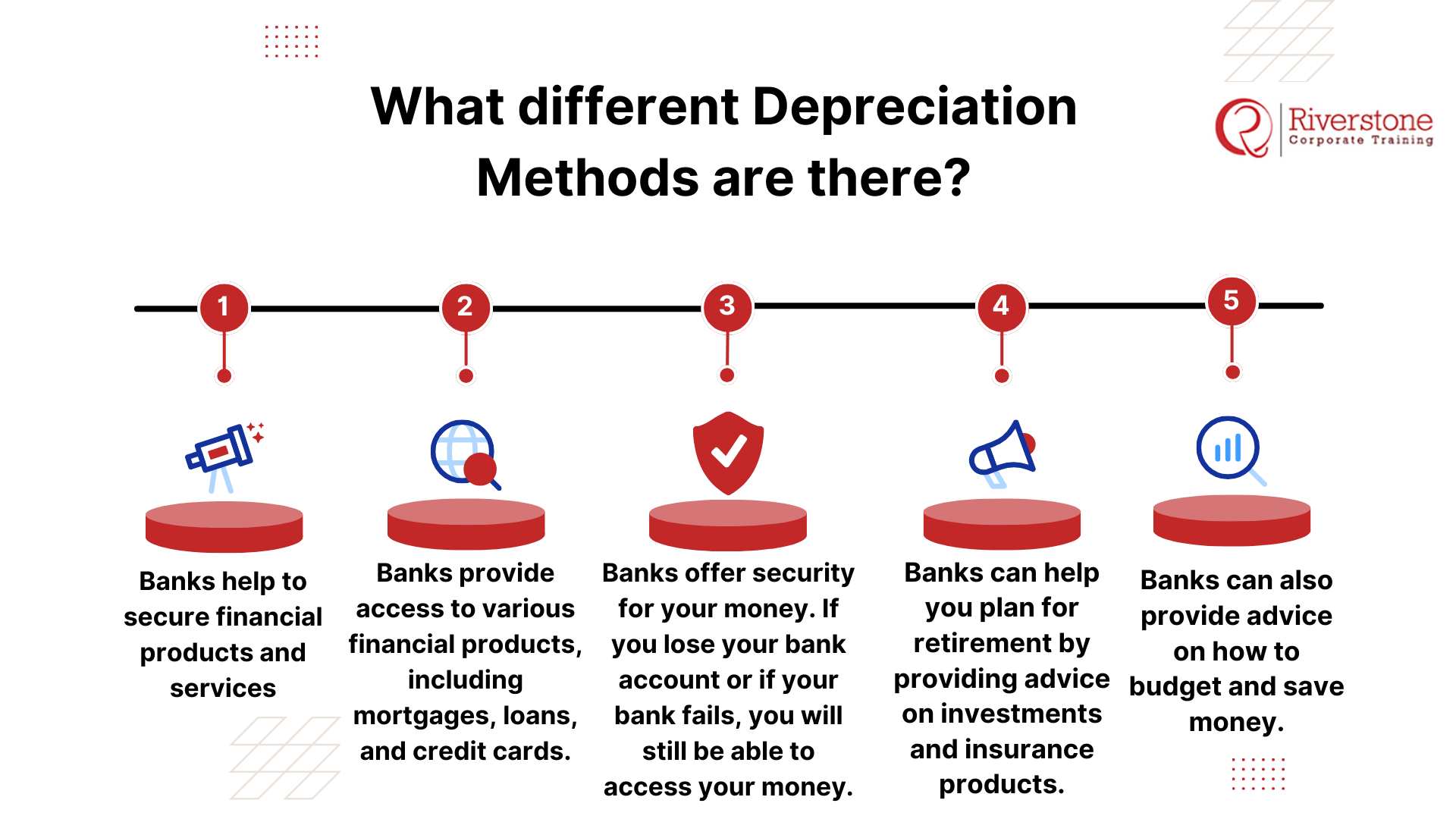 Banking and Finance Course
Banking and Finance Course
Are you seeking a competitive edge in the banking and finance industry? If so, enroll in our online banking and finance course! Our program will teach you the ropes of the industry, from customer service to financial planning. Shortly, you’ll be prepared to take on any challenge in this field.
Definition of Banking and Finance
Banking and finance involve money management, either in the form of currency or other assets. They include issuing loans, maintaining accounts, and negotiating contracts. The term “banking” can refer to any financial institution, while “finance” is typically used to refer to activities within a banking system. For professionals seeking to deepen their understanding, a finance course for banking and finance can enhance practical knowledge. Additionally, a financial assets training course provides valuable insight into managing different types of financial instruments effectively.
The history of banking and finance is closely linked with the development of currencies and financial markets. The first banks were founded in ancient Sumeria, where they were used to facilitate trade between farmers and merchants. As economies developed, banks became more involved in lending money to businesses and consumers and began to play a role in developing financial markets. Over time, banks became engaged in other financial activities, such as securities trading and insurance brokering. Today, many professionals choose to learn banking history for entrepreneurs to better understand how these financial systems have evolved and how they impact modern business strategy.
Today, banking and finance are essential parts of many economies worldwide. They have a vital role in facilitating economic growth by providing access to credit for businesses and consumers and playing a role in the development of financial markets. To better understand these dynamics, many turn to economics finance training for professionals to gain deeper insights into how financial systems support economic development and market stability.
The History of Banking and Finance
The history of banking and finance is full of notable moments and events. Here are a few examples:
- 509 BC-The first banks are founded in ancient Greece.
- 1516-The world’s first stock exchange opens in Amsterdam.
- 1776-The United States Constitution establishes the Bank of the United States.
- 1837-The first central bank, the Bank of England, is created.
- 1933- The Securities and Exchange Commission is established to regulate the securities industry.
- 1979- The Savings and Loan Crisis leads to the passage of the Banking Reform Act of 1978.
- 1997- The Euro is introduced as a new currency by member nations of the European Union.
- 2008-The global financial crisis begins with the collapse of Lehman Brothers.
The Role of Banks and Financial Institutions in the Economy
One of the significant roles of a bank or financial institution is to provide loans to businesses and consumers. By offering loans, banks and other financial institutions help stimulate the economy by helping businesses and consumers to purchase goods and services. In addition, banks and other financial institutions play an essential role in the financial system by providing liquidity for markets. Liquidity refers to the ability of markets to function smoothly by allowing buyers and sellers to exchange goods and services. For professionals seeking to understand this in depth, enrolling in the best financial modeling course can enhance practical knowledge of how these institutions operate.
Banks generally have a crucial role in the economy by investing money. By investing money, banks help to create new jobs and businesses. Additionally, banks make it possible for people to borrow money to buy items they may not be able to afford on their own. In some cases, banks also invest in stocks and other types of securities. By doing so, banks help to promote economic growth by providing investors with opportunities to make profits. Banks are critical elements of the financial system and play an important role in promoting economic growth, which can also be analyzed in structured programs such as an advanced financial modeling certification.
Types of Banking and Financial Course
The types of banking and finance courses you can take depends on your experience level and what you want to learn. You may consider an introductory banking course if you are starting in the business world. The course would teach you how banks work, how to open a bank account, and how to get loans. If you are more experienced in the business world or looking for a more comprehensive financial education, you may want to consider an intermediate banking or investment course. These courses will teach you more complex financial matters such as debt financing, stock market investing, and leasing agreements. Whatever type of banking or financial course you decide to take, ensure you are comfortable with the material. The most crucial aspect is to understand what you need to know to be successful in the business world.
The Benefits of Banks and Financial Course
Banks are an essential part of our financial system. They provide a way to store and access money and credit, and other financial products. A bank may also offer other services, such as loans and mortgages. These services are essential for both individuals and businesses.
The benefits of banks and a financial course are numerous. Here are just a few:
- Banks help to secure financial products and services.
- Banks provide access to various financial products, including mortgages, loans, and credit cards.
- Banks offer security for your money. If you lose your bank account or if your bank fails, you will still be able to access your money.
- Banks can help you plan for retirement by providing advice on investments and insurance products.
- Banks can also provide advice on how to budget and save money.
Why is Banking and Financial Course Important?
When people think of banking and finance, they may think of things like loans, investments, and banks. However, there is a lot more to banking and finance than this. Banking and financial courses are essential because they teach students how the economy works and businesses operate. One of the main benefits of studying banking and finance is that it can help students understand the economy better. This is because banking and financial courses teach students how money works and how businesses borrow money to fund their operations. This knowledge can help students see how the economy works from a deeper level, which can make it easier for them to understand problems that arise in the economy.
In addition, studying banking and finance can also help students develop good financial skills. These skills can be helpful for anyone, not just those interested in pursuing a career in banking or financial services. For example, having good financial skills can make it easier for someone to manage their finances or invest wisely. Overall, banking and financial courses are essential to any student’s education. They can help students better understand the economy, develop good financial skills, and see how a business operates from a deeper level. Enrolling in an advanced banking and finance diploma Singapore program is one effective way to gain this knowledge and build career-ready financial expertise.
Conclusion
Thank you for reading this article on the banking and finance course. In it, we will be discussing the different aspects of this course and what benefits could come from taking it. We will also be looking at some of the best providers of this type of education in the UK so that you can make an informed decision as to whether or not this is the right course for you. Thank you once more for reading, and I hope that you find our article helpful.

 Banking and Finance Course
Banking and Finance Course
